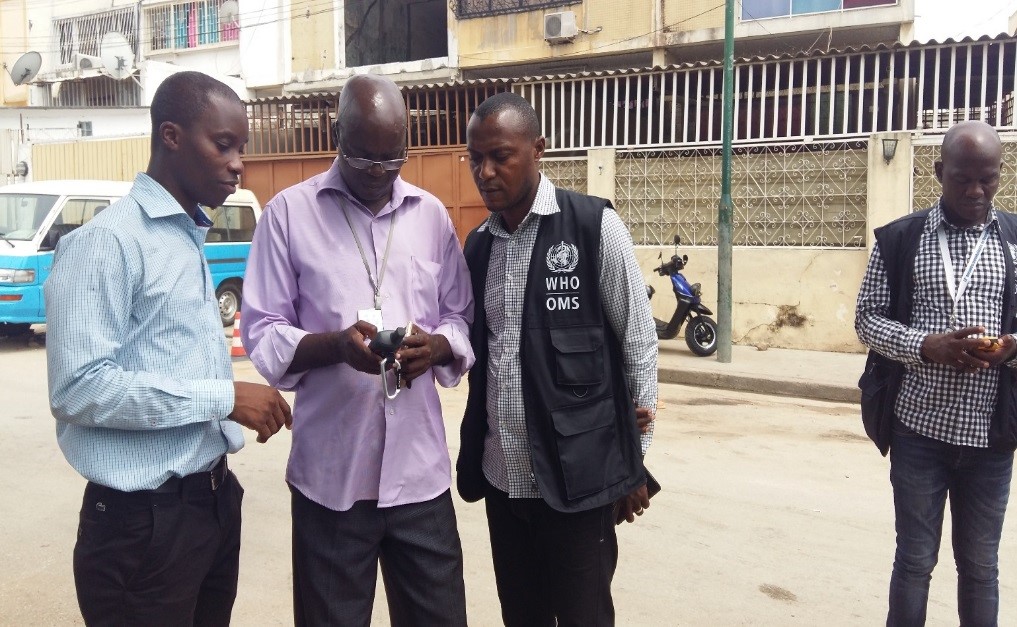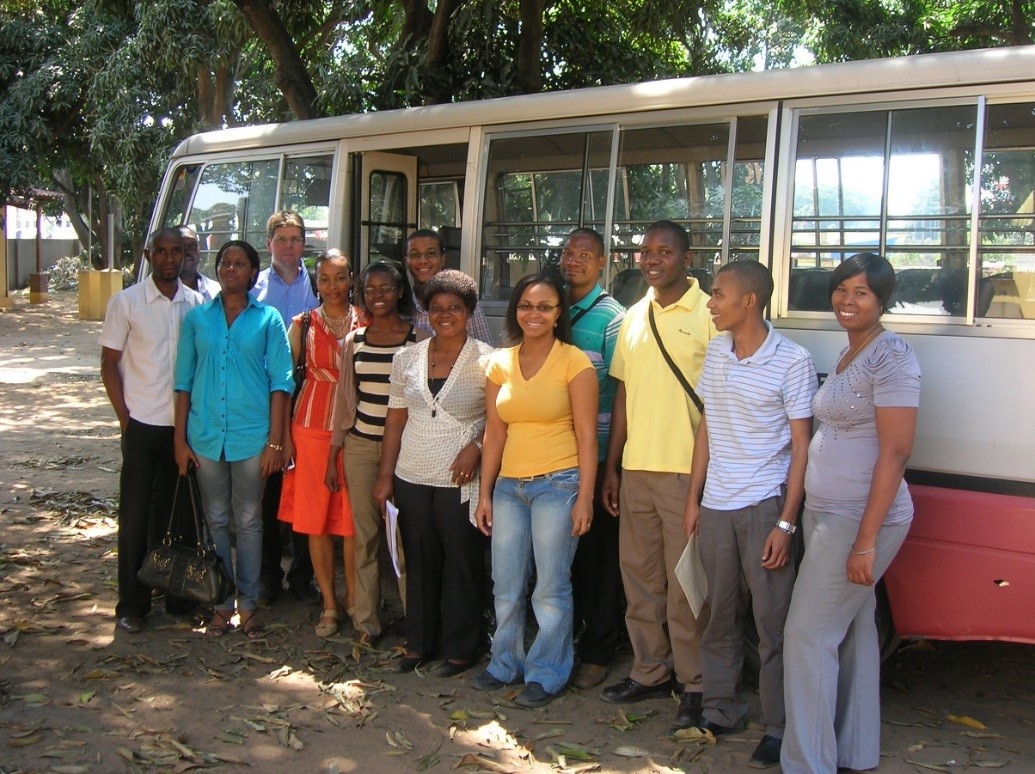CDC-Mozambique FETPs Combat Yellow Fever in Angola

Mozambique FETP Resident Claudio Muianga (left), works with colleagues in Angola
Just as FETP Resident Advisor (RA) Tim Doyle was leaving CDC-Mozambique on February 3, 2016 to go to South Africa as its new FETP RA, his plans changed.
He was rerouted to Angola, the epicenter of Africa’s largest yellow fever epidemic in 20 years, to support the public health response.
As of June 15, 2016, Angola has reported 3,137 suspected cases of yellow fever with 345 deaths. Among those cases, 847 have been laboratory confirmed.
Yellow fever is a mosquito-borne viral hemorrhagic fever that occurs in tropical South America and sub-Saharan Africa. It’s a nasty disease with fever, chills, muscle pain, nausea, and, in severe cases, liver damage and internal bleeding. The mosquitoes (Aedes aegypti), which also transmit chikungunya, dengue and Zika viruses, like to hang around homes, especially in densely populated areas with poor sanitation. The rainy season, which in Angola lasts from November to April, can lead to rapid spread of diseases caused by mosquitos, such as yellow fever.
CDC’s Global Disease Detection (GDD) Operations Center, working closely with the Division of Vector-Borne Diseases, has been supporting the CDC country office in Angola by coordinating the agency’s response efforts, identifying staff, and by providing funding for deployments to Angola to assist with the response.
The response needed Portuguese speakers, but many of those CDC staff were busy with the Zika outbreak in the Americas. For the past five years, Tim had trained the Portuguese-speaking FETP residents in Mozambique. Involving Mozambique FETP residents and graduates in the yellow fever response was an opportunity to maximize CDC expertise and its collaboration in one Portuguese-speaking country to assist another.
FETP graduates may participate in international deployments as part of their ongoing professional development, but with few English-speakers in Mozambique, they’ve had few opportunities to assist. Deploying to Angola was an opportunity for Mozambique FETP graduates to work side by side with Angolan health officials. Mozambique’s FETP graduates were enthusiastic about assisting Angola’s FETP in its yellow fever response.

Residents of Cohort 1 of Mozambique FETP, along with CDC Resident Adviser Tim Doyle, (4th from left). Mozambique resident Cristolde Salomao (6th from right) deployed to Angola to assist with the yellow fever response.
This response is an example of Africans helping Africans and building on CDC-supported infrastructure.
Two Mozambique FETP graduates deployed to Angola to assist with the field work component. They conducted active case finding and shared with the Ministry of Health (MOH) what they saw in the municipalities while they were out. They also had a role in developing maps using GPS/GIS software that helped guide response efforts.
Says RA Tim Doyle, “It was really gratifying to see people I helped train years earlier be able to provide valuable technical assistance in another country where it was needed in a crisis. That’s what FETPs are all about: investments today to build the global public health workforce needed to respond to the crises of tomorrow.”
Amid the complexity of the outbreak, the response team was dealt another wildcard – an effective vaccine against yellow fever exists, but its supply is limited. The vaccine campaign in the capital of Luanda reached 92% coverage – over 6 million people received a dose of the vaccine. Another 4.5 million people have been immunized in other provinces. Presently, however, there’s not enough vaccine to vaccinate all of Angola’s 24 million population.
Three countries have reported confirmed yellow fever cases exported from Angola: Democratic Republic of Congo (DRC), 53 cases; Kenya, 2 cases; and People’s Republic of China, 11 cases. DRC now has local transmission (6 cases) as a result of the imported cases. This highlights the risk of international spread through non-immunized travelers.
The focus now is to contain the outbreak to keep it from spreading further. CDC staff will continue working with Angola’s MOH to prevent further exportation of yellow fever.
There’s a concern about it being exported to Asia. Yellow fever has never been seen in Asia, and preventing it from spreading there is crucial to preventing a possible worldwide epidemic.
Tireless work, endless days in the field, and months of dedicated efforts by CDC headquarters and in-country staff along with Mozambique’s CDC-trained FETP graduates, and many partners, including WHO, have been, and continue to be, essential in combatting the ongoing yellow fever epidemic in Angola.